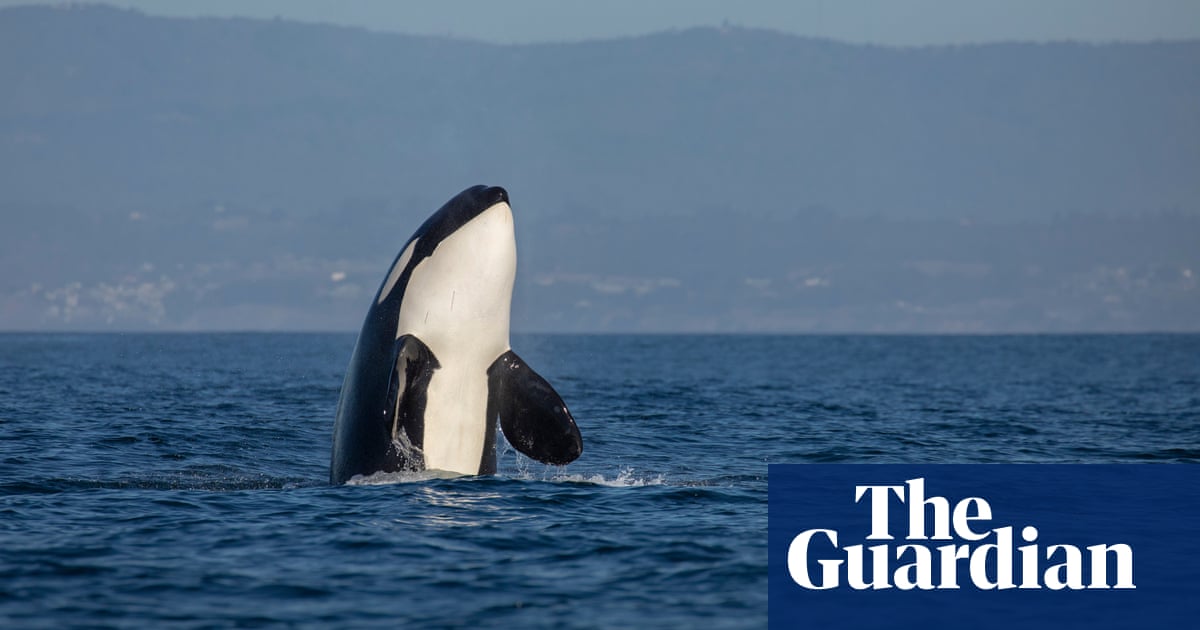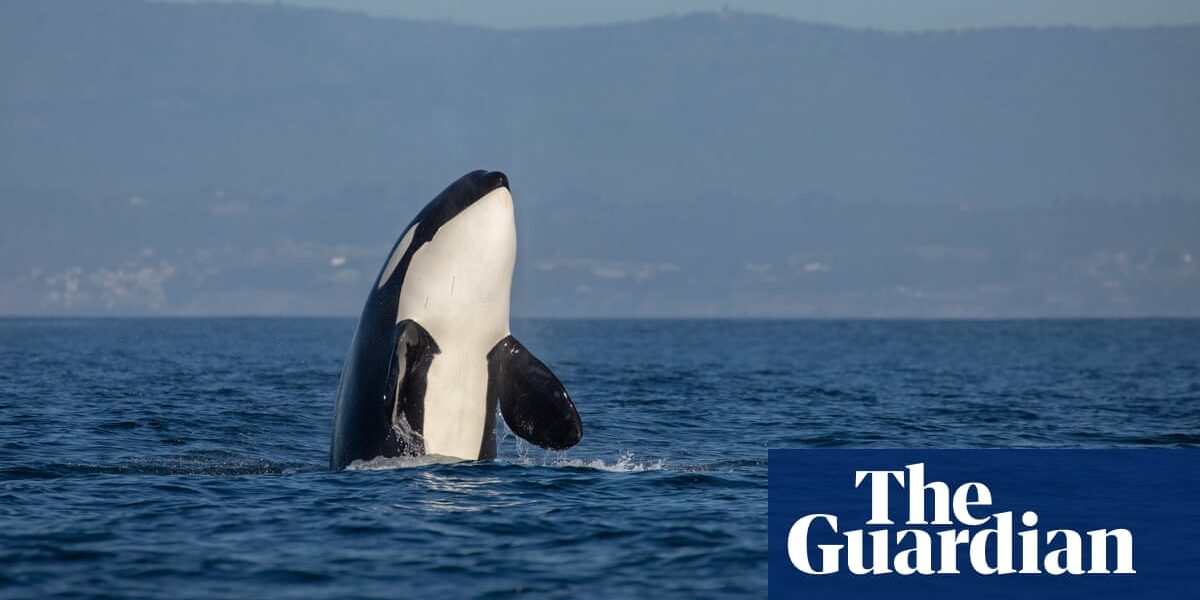A lone killer whale was observed attacking and killing a large white shark near the coast of South Africa.

Scientists were taken aback by a swift and aggressive attack where a killer whale devoured a great white shark within two minutes, taking the shark’s liver as it swam away.
According to specialists, the incident near Mossel Bay in South Africa provides fresh understanding of the hunting habits of killer whales.
Although orcas have been observed hunting sharks, dolphins, and other whales by themselves in the past, this newly recorded occurrence is believed to be the first instance of a lone orca taking down the largest predatory fish in the world.
According to Dr. Alison Towner of Rhodes University, who led the research, killer whales, also known as orcas, typically collaborate when hunting, but they are also capable of hunting alone. The study revealed an uncommon occurrence of a killer whale, named Starboard, hunting a white shark by itself in a surprisingly quick manner.
The occurrences that took place on June 18th, 2023, have been recorded in the African Journal of Marine Science. They resemble a plot that could easily belong in a Spielberg film.
The team shared that they launched a boat at around 2pm when they received reports of Starboard and Port, two killer whales. As they followed the pair across the water, they noticed the scent of shark liver and diving kelp gulls, which suggested a recent kill.
The next attack happened quickly: at 3:02pm, a young white shark emerged from the water’s surface. Soon after, Starboard appeared in the same location.
According to the report, the whale firmly grasped the left pectoral fin of the shark and repeatedly pushed it forward before ultimately gutting it. A few minutes later, observers noticed the whale carrying a red fragment of liver, similar in color to a peach, in its mouth.
The researchers and tourists on board another ship that had participated in shark cage diving activities also recorded the attack.
According to the researchers, prior incidents in the area where orcas have hunted sharks have involved groups of two to six orcas and lasted approximately two hours.
Although Starboard was successful in killing a young great white shark that measured approximately 2.5 meters in length and weighed 100kg, the team suggests that the shark may need to work together with others in order to take down larger prey. Fully grown great white sharks can reach sizes of up to 6.5 meters and weigh up to 2.5 tonnes.
Earlier studies conducted by the team showed that Port and Starboard, named for their bent dorsal fins facing opposite directions, have been cooperating to hunt off the coast of South Africa in recent times.
The duo seems to have a preference for high-energy shark livers, although scientists are unsure of how orcas access and eat these organs from large sharks.
There is worry that the activities being conducted may result in the displacement of different types of sharks, such as great white sharks, from coastal areas.
Dr. Primo Micarelli, a researcher at the Shark Studies Center and Siena University, was a co-author of the recent study. He observed the event where an orca, known as Starboard, carried the liver of a great white shark by the boat he was on. He described the experience as unforgettable, but also expressed his growing concern for the balance of marine life near the coast.
Source: theguardian.com


